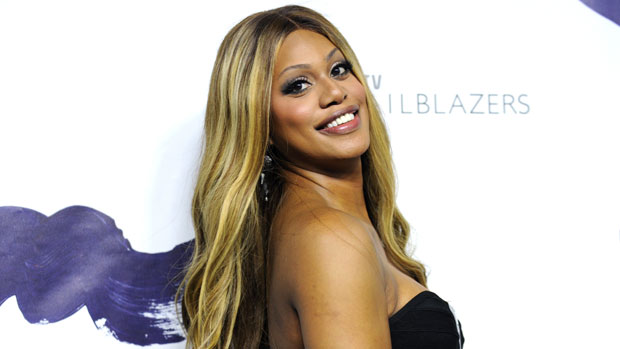The 'transgender tipping point': how and why attitudes are changing
Positive reaction to Kellie Maloney shows a shift in media and society – but there is still a long way to go

A free daily email with the biggest news stories of the day – and the best features from TheWeek.com
You are now subscribed
Your newsletter sign-up was successful
Earlier this week Kellie Maloney, the former boxing promoter, announced that she was coming out as a transgender woman. Her announcement sparked surprise but also a large amount of support from the boxing world and beyond.
Transgender (or trans) is an umbrella term for people whose gender identity differs from the sex they were assigned at birth.
The public response to Maloney's announcement was "almost uniformly positive", writes Tom de Castella for the BBC, and shows how much attitudes to trans people have changed over the past decade. We look into how these changes came about, as well as the problems that still need to be tackled.
The Week
Escape your echo chamber. Get the facts behind the news, plus analysis from multiple perspectives.

Sign up for The Week's Free Newsletters
From our morning news briefing to a weekly Good News Newsletter, get the best of The Week delivered directly to your inbox.
From our morning news briefing to a weekly Good News Newsletter, get the best of The Week delivered directly to your inbox.
Change in attitudes
Writer and activist Jane Fae tells the BBC that attitudes in Britain are noticeably improving. Based on Fae's own personal experience, transgender people were widely treated as "freaks" before the mid-90s. These old attitudes explain why so many people like Kellie Maloney waited decades to come out as trans.
"Trans is on the agenda and, unless your view of trans folk is essentially rooted in bigotry, the unstoppable impulse is towards change," Fae writes in the Guardian.
There has been both an increase in transgender people (10 per cent more each year) as well as a rise in their representation. The June issue of Time magazine placed transgender actress Laverne Cox on its cover, under the headline 'the transgender tipping point'. In the interview she said "there are more media representations that young trans people can look to [today] and say, that’s me, in an affirming way."
A free daily email with the biggest news stories of the day – and the best features from TheWeek.com
Trans activist Sarah Brown says she has witnessed a "slow improvement" in attitudes. "We are more visible now, and many [people] are more accepting of the idea that we deserve equality."
Change in language used by both the public and media
The press has often been accused of using offensive phrases and terminology when discussing trans people, including the misuse of pronouns, continuous 'deadnaming' – referring to a trans person's previous name – as well as giving a platform to transantagonistic people.
The media, and subsequently the public, have begun to respond to calls from activists to correct their language. Trans Media Watch in particular campaigns to raise awareness about antagonistic coverage of trans people.
Many believe the Leveson Inquiry into press standards was responsible for this shift in mentality. Post-Leveson, the press has become "far more sensitive" in its reporting of transgender issues, the BBC says. People have also begun to realise that words previously used to describe transgender people are just as unacceptable as racial slurs.
Change in law
The 2010 Equality Act combined and revised legislation relating to trans people. The government says it was introduced in order to protect transgender people from discrimination, harassment and victimisation in all areas of public life. Many called it a milestone in trans rights.
But much more change is still needed
There has, however, been significant debate surrounding the act within the trans community, with activists arguing that is actually a step backwards for trans people. Brown explains that the act "actually took away rights for many trans people, and still failed to recognise the existence of non-binary people".
Trans women continue to face discrimination, even within feminist circles. A group referred to as trans-exclusionary radical feminists (or Terfs) insist on labelling them men and say they should be denied access to women's facilities.
Trans people also still face disproportionate levels of violence, according to the Human Rights Campaign Foundation, and higher than average suicide rates.
"We are widely discriminated against in healthcare, employment, housing and goods and services," Brown says. "Many trans people live in poverty and discrimination keeps them there."